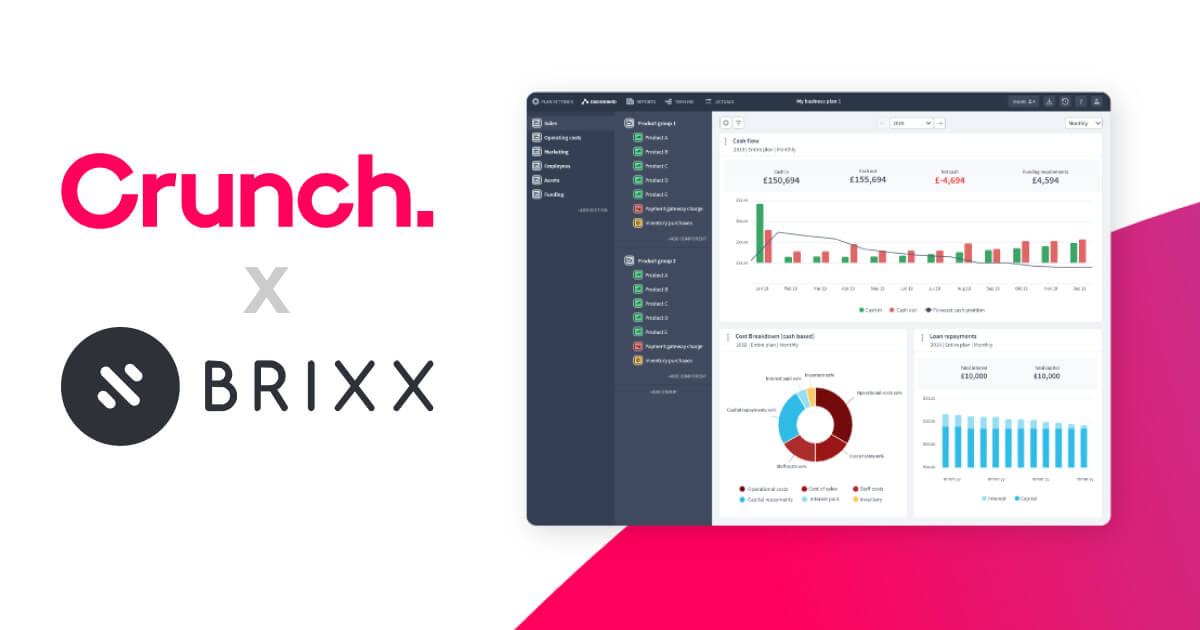At the end of October 2016, an employment tribunal ruled that two Uber ‘test case’ drivers were not self-employed, independent contractors but workers (for the purposes of the Employment Rights Act 1996, the National Minimum Wage Act 1988, and the Working Time Regulations 1998).
This was the first case about job status in the gig economy. This was swiftly followed by a CitySprint case in February 2017, you can read the details here - and in March 2017, an Excel cycle courier case. It was announced that the GMB are representing 23 current and former workers of Parcel Delivery firm X who also believe they’re not self-employed.
The decision means the drivers are entitled to the national living/minimum wage , sick pay (SSP) , holiday pay, rest breaks , protection under whistle-blowing laws , and pension contributions (under pension auto-enrollment laws). As freelancers, they had no legal right to these benefits.
Uber had argued that its drivers, or ‘partners’ as it calls them, were self-employed independent operators, while GMB (the union representing them) argued they were in fact workers, because of the degree of control Uber has over them.
How the Tribunal described the Uber system
Once a passenger request is received, Uber London locates the driver closest to the passenger and informs them via their smartphone app of the request.
The driver has 10 seconds in which to accept the trip. If they don’t respond within that time, another driver is allocated. The driver is only told the passenger’s first name at this point.
If a driver accepts the job, they and the passenger are put into direct contact through the Uber App to communicate. Drivers are strongly discouraged from asking passengers for the destination before the pick-up.
At the end of the trip, the fare is calculated by Uber based on GPS data from the driver’s smartphone, taking into account time spent and distance covered. This is the recommended fare, although drivers can agree lower fares with passengers.
Uber pays its drivers weekly, based on the fares they’ve earned minus a ‘service fee’ for using the App, which is now 25% of the fare.
Uber’s position is that drivers are at liberty to accept tips from passengers, but the Tribunal were shown documents that “evidence their disapproval of drivers soliciting tips”.
If passengers complain that they’ve been overcharged (e.g. following an inefficient route), Uber considers the complaint and whether to compensate them. If there’s no proper grounds for holding the driver at fault, Uber bears the loss.
Whether ‘personal service’ was required in the relationship between the drivers and the company
A worker is defined under the Employment Rights Act as (summarised) an individual who has entered into or works under:
a contract of employment, or,
any other contract, whether oral or in writing
where the individual undertakes to do or personally perform any work or services for another party to the contract.
Uber relied on the following to demonstrate their relationship with the drivers:
Drivers can work for or through other organisations, including direct competitors
Drivers must meet all the expenses associated with running their vehicles, including funding their Private Hire licences
Drivers are free to elect which ‘products’ to operate, e.g. which type of Uber service to provide as there are several driving services offered (the Tribunal dismissed this by saying “whose product range is it if not Uber’s?” – one driver can only offer one product)
The drivers treat themselves as self-employed for tax purposes
Drivers aren't provided with any clothing or apparel (i.e. an Uber uniform) and in London are discouraged from displaying any Uber branding.
Uber also said in its defence that Uber drivers were never under any obligation to switch on the app, and if they did, they weren't under any obligation to accept any driving assignments. Therefore, this was incompatible with the existence of any form of employment or contract.
The Tribunal accepted that there was no obligation to turn on the App but when the App was switched on “any driver who:
a) has the App switched on b) is within the territory in which they are authorised to work, and c) is able and willing to accept assignments d) is, for so long as those conditions are satisfied, working for Uber under a ‘worker’ contract”.
Uber also suggested that they supplied the drivers with leads, which suggests the driver is put into contact with a possible passenger with whom they've the opportunity to negotiate and strike a bargain. But the Tribunal felt that the drivers don't and can't negotiate fares with passengers (except to reduce the fare set by Uber). They're offered and accept trips strictly on Uber’s terms.
On the relationship between the drivers and the company, the Tribunal found that the drivers provide the skilled labour through which Uber delivers its services and earns its profits. Relevant factors included:
Uber calls itself the drivers’ agent, but it has sole discretion to accept or decline bookings and controls key information, such as the passenger’s name, contact details, and destination. Under its terms, access to the App is personal to the driver and cannot be shared or transferred to someone else, so there can be no ‘substitute’ drivers
It interviews and recruits drivers – drivers can sign up online but then must attend an induction at a specified location (Uber calls this ‘onboarding’). Uber denied anyone was interviewed, but in an e-mail from Uber in March 2015 it urged an applicant to ‘book an interview slot now’. The Tribunal accepted that Uber didn't subject applicants to close interview scrutiny but there was an interview of some sorts
Drivers aren’t allowed to accept then cancel trips – if they do, they’re given warnings which culminates in Uber logging them off the system for 10 minutes
Drivers are asked to accept 80% of trip requests to retain their “account status”. Uber sets the default route and the driver, if they deviate from it, must justify this. Uber also defines what vehicles are acceptable.
Uber fixes the fares and takes the fare; the passengers don’t pay the driver directly
It has a rating system that’s essentially a performance management system and sometimes handles complaints without involving the driver. Uber requires that drivers maintain an average 4.4 rating or above or else face “quality interventions”, which ultimately is Uber’s right to deactivate the driver’s access to the App and Uber services
In addition, Uber has a ‘Driver Offence Process’ to tackle more serious conduct, which is again a graduated series of measures against the driver, ultimately leading to ‘deactivation’
Uber reserves the power to amend drivers’ terms unilaterally (an unequal bargaining position)
A ‘Welcome Packet’ given to drivers during onboarding includes information on “what Uber looks for”, such as high-quality service stats, low cancellation rates, and high acceptance rates.
Drivers' working time
Uber said that the drivers were only working when they were driving passengers
The Tribunal found that the drivers are ‘working’ when they've switched on the App, are in the ‘territory’ in which they are licensed to use it, and are ready and willing to accept trips (being available to take passengers was an essential part of the drivers' service)
This will have a large impact on the calculation of their National Minimum Wage payments as, currently, drivers don’t receive payment for time spent ‘waiting’.
The Tribunal's view
The Tribunal was ultimately critical of Uber’s terms and conditions using “fictions, twisted language and even brand new terminology”, which didn't reflect the reality of the situation of how they actually employ their drivers (an example being a description that "Uber drivers are commission based…" , which Uber said was a typographical error).
The decision is by a first-tier tribunal and so not binding on other tribunals. However, it'll have implications wider than just costs for the whole ‘gig’ economy, even though it was fact-specific to Uber’s business model.
Going forward…
After the verdict, the Regional General Manager of Uber in the UK said: “Tens of thousands of people in London drive with Uber precisely because they want to be self-employed and their own boss. The overwhelming majority of drivers who use the Uber app want to keep the freedom and flexibility of being able to drive when and where they want.”
There will, of course, be an appeal by Uber, and a further Tribunal to calculate the backdated holiday and pay the drivers should receive.
Since the decision, apparently Uber has e-mailed its 40,000 UK drivers to claim the judgements would only affect the two drivers who brought the case. The GMB Union responded by saying it applied to all 40,000 drivers.
November 2017
In November 2017, the Employment Appeal Tribunal confirmed that Uber drivers were workers and not self-employed contractors. Uber had appealed the tribunal decision saying that it was the “agent” for the drivers who themselves provided the transportation services. The EAT found that Uber weren’t simply an “agent”, the question to ask was that when the drivers were working, who were they working for? The EAT found that the original Tribunal were entitled to conclude that there was a contract between Uber and the drivers, where the drivers personally undertook work for Uber as part of its business of providing transport services to passengers. Drivers were integrated into it, they couldn’t grow their own business, had no ability to negotiate terms with passengers and had to accept work on Uber’s terms.
They also considered whether drivers were ‘workers’ when they were between jobs (it was obvious they were working when they had a passenger in the car) – when the app was switched on and they were in the territory in which they worked and were ready and willing to accept trips. Uber said that during these times the driver could equally be logged onto the app of a competitor taxi business. The EAT felt that in reality once the driver had the Uber app switched on the driver was obliged to accept at least 80% of trips in order to retain their account status; if they had worked for a competitor during this time they were unlikely to be available for Uber work.
It was immediately expected that Uber would appeal and they did so to the Court of Appeal, who decided, in December 2018, that the Employment Tribunal were correct and the drivers were workers. Uber was given permission to appeal to the Supreme Court and the Supreme Court heard the case in July 2020.
February 2021
The Supreme Court delivered their judgement on 19th February 2021, confirming that they were workers.
The Supreme Court's six judges unanimously agreed that the drivers were working "for and under" Uber, regardless of what the contract said - the service provided by the drivers was "very tightly defined and controlled by Uber" and they were "in a position of subordination and dependency in relation to Uber". The Court went onto say that the purpose of employment legislation was "to give protection to vulnerable individuals who have little or no say over their pay and working conditions" and that Uber, by drafting artificial contracts that intended to side-step basic employment rights, made the contracts void and unenforceable.
The Court also ruled that Uber must consider the drivers as workers from the time they log on to the app, until they log off.
Uber are unable to appeal this decision and one of the lawyers acting for the claimants anticipates there will be a significant class action against Uber. However, Uber's Northern and Eastern Europe's General Manager said that "We respect the court's decision which focused on a small number of drivers who used the Uber app in 2016". Uber believes they are not obliged to apply the case decision to its other drivers - the General Manager went onto say that "we are committed to doing more and will now consult with every active driver across the UK to understand the changes they want to see"!
The case will return to a normal employment tribunal to determine the level of compensation for the workers.
The case should have wide-ranging implications for everyone working in the gig economy, especially taxi drivers, couriers and delivery drivers, and several organisations are now calling on the government to reform employment law by writing a definition of self-employment into law and ensuring that gig workers have access to all 'worker ' benefits. Frances O'Grady, the general secretary of the TUC, said "No company is above the law. Uber must play by the rules and stop denying its drivers basic rights at work".
17th March 2021 update
In a surprising move, Uber announced that it would guarantee all its UK drivers (circa 70,000) entitlement to at least the national minimum wage, holiday pay (calculated at 12.07% of earnings) and automatic enrollment into a pension scheme, from 17th March 2021! The drivers would retain the right to choose when they work.
However, the two original claimants in the long-running legal case (Farrar and Aslam) said that the minimum wage and holiday pay would only accrue from when a trip was accepted by a driver to when the passenger was dropped off, and does not apply to the whole time the drivers were logged onto the app - which is the 'working time' the Supreme Court laid out. Farrar and Aslam said this meant that Uber drivers could miss out on up to 50% of potential earnings. So, we'll see where this goes next, but some good news at least!
Addison Lee refused the right to appeal following the Uber ruling
In a similar, long-running case, The Court of Appeal, in April 2021 have ruled that Addison Lee’s case has no reasonable chance of success, following the Uber Supreme Court decision, and denied their request to appeal a 2017 Employment Tribunal decision that its drivers are also workers (which was later upheld by the EAT).
If you are an Employer and need ongoing professional help with any staff/freelance issues then talk to Lesley at The HR Kiosk – a Human Resources Consultancy for small businesses – our fees are low to reflect the pressures on small businesses and you can hire us for as much time as you need.
Please note that the advice given on this website and by our Advisors is guidance only and cannot be taken as an authoritative or current interpretation of the law. It can also not be seen as specific advice for individual cases. Please also note that there are differences in legislation in Northern Ireland.

.svg)






